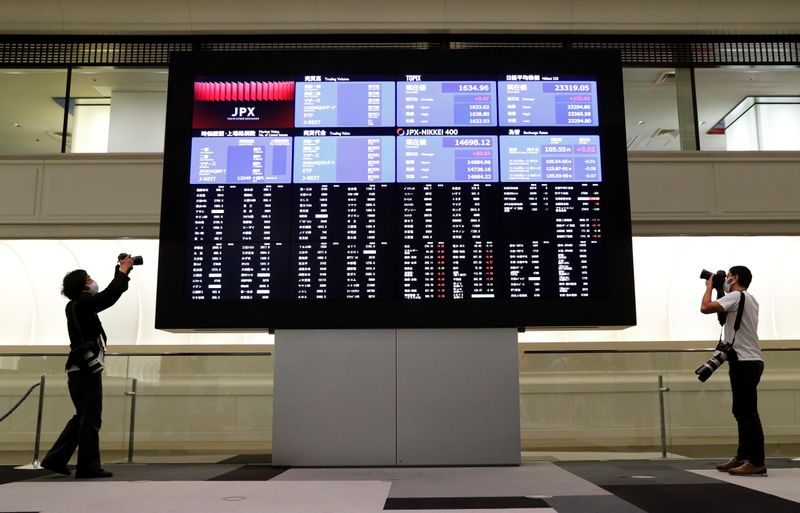This post was originally published on this site
https://i-invdn-com.akamaized.net/trkd-images/LYNXMPEG9K003_L.jpg
NEW YORK (Reuters) – Asian stocks were set for modest gains on Wednesday after renewed U.S. stimulus hopes helped Wall Street higher, although wobbles in the tech sector could keep a lid on investor sentiment.
Australian stocks opened slightly higher while MSCI’s gauge of stocks across the globe was roughly flat. The Nikkei 225 futures were up 0.25%.
“It will be quite a mixed day,” said Ryan Felsman, senior economist at CommSec. “People are digesting the potential for a stimulus bill, and markets are very cautious on the back of that.”
Hong Kong’s Hang Seng index futures were up 0.24%.
The White House and Democrats in the U.S. Congress moved closer to agreement on a new coronavirus relief package on Tuesday as President Donald Trump said he was willing to accept a large aid bill despite opposition from his own Republican Party. Negotiations will continue on Wednesday, an aide to top U.S. Democrat Nancy Pelosi said.
On Wall Street, shares of Google parent company Alphabet (NASDAQ:GOOGL) rose despite an antitrust lawsuit against it by the U.S. Justice Department.
Netflix (NASDAQ:NFLX), however, reported disappointing earnings, leading its shares to fall 6% after trading hours, a development that could cause an “overhang” in Asian trading, Felsman said.
The Dow Jones Industrial Average was up 0.40% and the S&P 500 was up 0.47%. The tech-heavy Nasdaq Composite rose 0.33%.
The U.S. dollar softened on Tuesday, hitting a one-month low against a basket of major currencies, as investors awaited the outcome of the fiscal stimulus talks and as coronavirus cases spiked in Europe.
The dollar index fell 0.411%.
Benchmark U.S. Treasury yields hit four-month highs on Tuesday on hopes lawmakers could agree on a stimulus package.
Oil prices also rose on optimism about a possible stimulus agreement, but the threat to demand from rising COVID-19 cases worldwide and increased output from Libya kept prices from moving higher.

